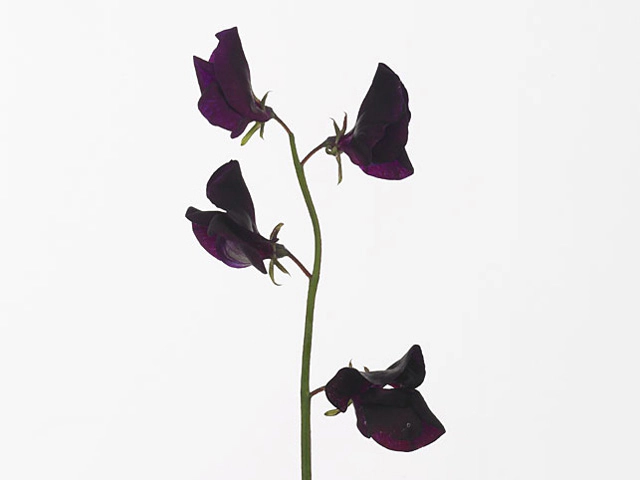Lathyrus odoratus other purple

| Fruit type | Pod |
| Leaf type | Foliage leaf |
| Flower color | Purple |
| Soil fertility | No poor soils |
| Inflorescence | Few-flowered |
| Structure (tissues) | Herbaceous |
| Light conditions | Sunny; Semi-shades |
| Plant, growth type | Climbing |
| Moisture requirements | Well-drained |
Sweet peas, scientifically known as Lathyrus odoratus, are a popular choice among gardeners for their vibrant purple flowers and sweet fragrance. These beautiful flowers are native to Sicily, Cyprus, and southern Italy and have become a favorite in gardens around the world.
The sweet pea belongs to the family Fabaceae and is known for its climbing growth type. With its twining stems, this plant can reach impressive heights, making it an ideal choice for trellises, fences, or arbors. Its foliage leaves are vibrant green and add to the overall aesthetic appeal of the plant.
Sweet peas produce their flowers in inflorescences, meaning they grow in clusters of a few flowers. The flowers of this plant are a stunning shade of purple, adding a splash of color to any garden. They also have a delightful fragrance that perfumes the air, making them a popular choice for bouquets and flower arrangements.
In terms of soil fertility, sweet peas thrive in well-drained soil. They prefer soil that is not poor, so it is important to ensure that the soil is adequately nourished. Adding organic matter or compost to the soil before planting sweet peas can significantly improve their growth and flowering.
Sweet peas require moderate moisture conditions and do well in both sunny and semi-shaded areas. They can tolerate some shade, but will generally have more prolific flowering in sunny spots. It is essential to water sweet peas consistently to keep the soil evenly moist but not waterlogged.
When it comes to the structure of tissues, sweet peas are classified as herbaceous plants. This means that their stems are soft and not woody. As a result, sweet peas are not able to support themselves like other plants and require support from structures such as trellises or other plants.
Sweet peas are a popular choice for many gardeners due to their beautiful flowers, sweet fragrance, and climbing growth type. With proper care and attention to soil fertility and moisture levels, these plants can thrive in any garden. Whether grown for their aesthetic appeal or their fragrance, sweet peas are sure to add a touch of elegance to any outdoor space.
Market availability index by month:
| Jan. | Feb. | Mar. | Apr. | May | Jun. | Jul. | Aug. | Sep. | Oct. | Nov. | Dec. |
|---|---|---|---|---|---|---|---|---|---|---|---|
| 1 | 1 | 2 | 3 | 4 | 3 | 2 | 1 | 1 | 1 | 1 | 1 |